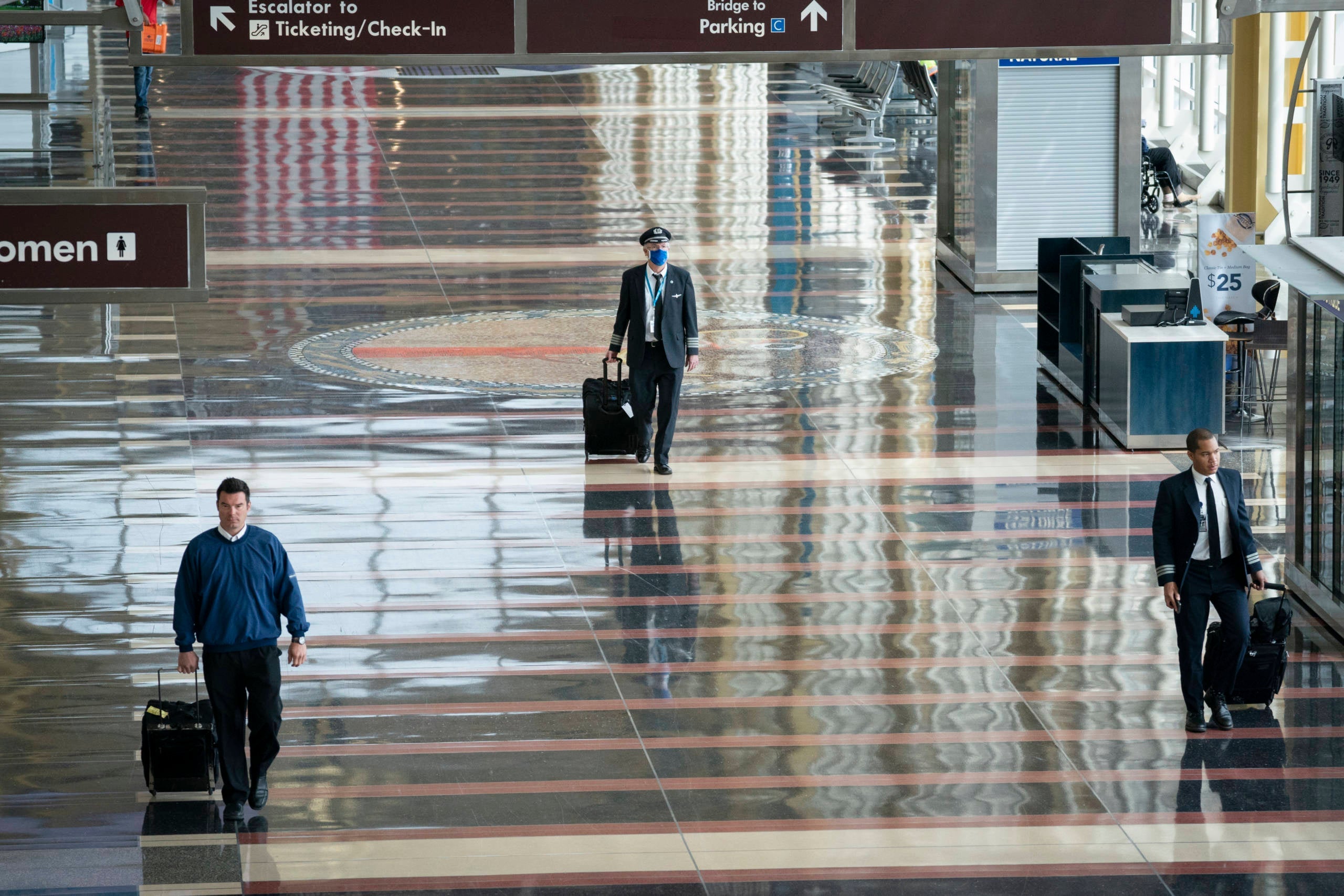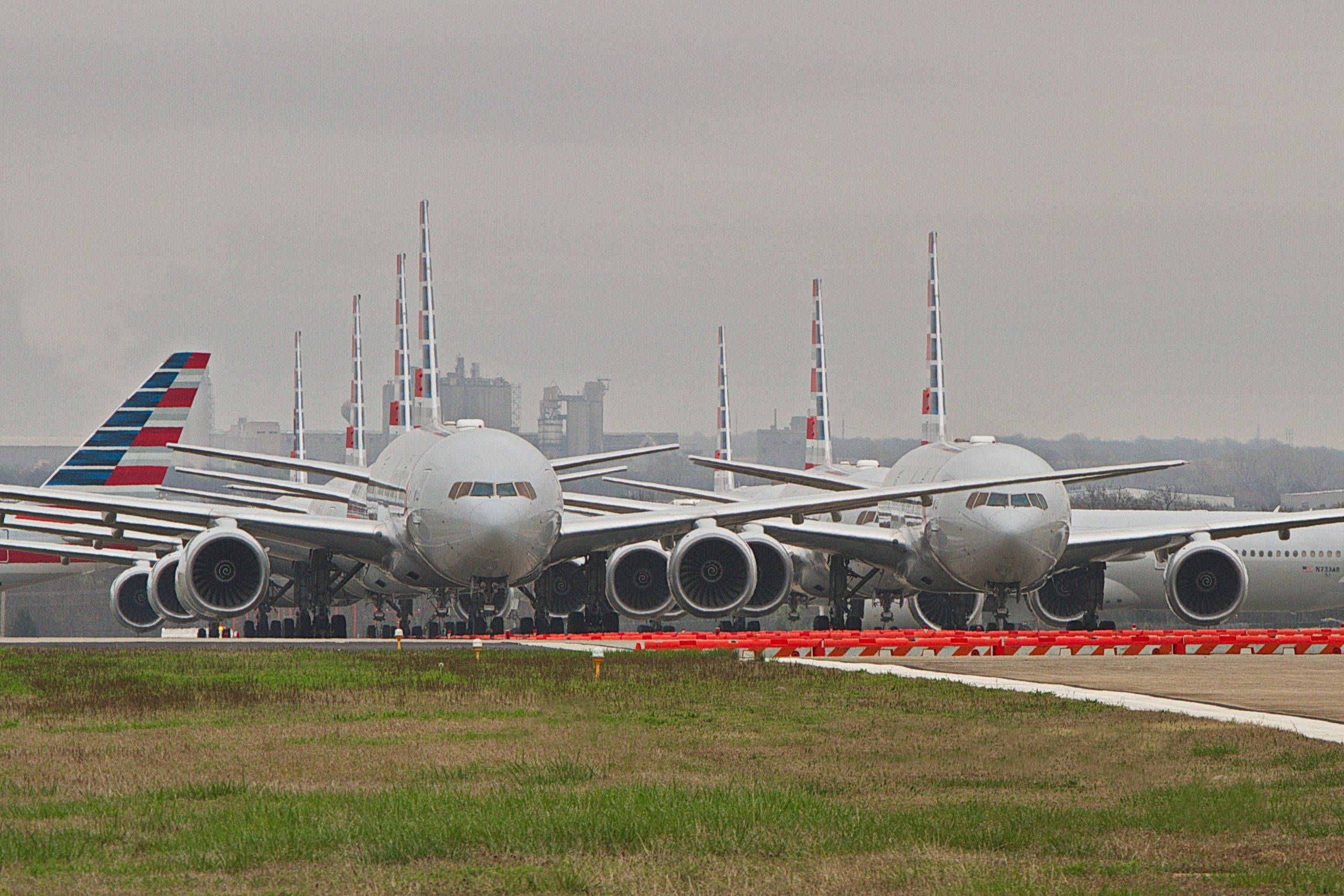Airlines flew empty flights to get coronavirus aid; now they're asking Congress for help
As the aviation industry hemorrhages money amid historically low travel demand, the $50 billion pot of government aid has been a crucial lifeline for U.S. carriers.
But, in order to receive their taxpayer-funded boost, airlines must adhere to certain requirements, including continuing to fly to most cities they served before the coronavirus pandemic hit.
Sign up for the free daily TPG newsletter for more airline news.
With most citizens still under some kind of stay-at-home order, however, airlines are largely having trouble filling the flights they're required to continue running.
Carriers have found some ways to squeeze efficiency out of their pared-down networks by operating tag and triangle routes that serve multiple cities with the same plane and crew. Airlines have also applied for exemptions from serving some of the lowest-demand airports on their maps, though the Department of Transportation has been somewhat unpredictable in granting those requests.
Related: Spirit Airlines revamps schedule with circle routes so it can receive coronavirus aid.
Now, the airlines say, they hope to see some of the flight frequency regulations relaxed as they continue to try to conserve cash.
Nicholas Calio, the CEO of the Airlines for America (A4A) trade group that represents big U.S. airlines, pressed the case Wednesday in testimony before the Senate's Commerce, Science and Transportation Committee, saying that his organization wants to work with the DOT to find a more "reasonable and practicable" level of air service than what's currently required by the law.
"We hope for a rationalization," he said. "It does not make sense when you have multiple carriers flying multiple flights into places where there is no demand."

Calio's claim is backed up by data from his organization.
Related: JetBlue and Spirit Airlines can suspend flights to 16 hub airports.
Ahead of his testimony, A4A told Reuters that U.S. airlines are collectively losing $10 billion a month, and only averaging 17 passengers on each domestic flight.
Delta, for example, recently noted in a waiver request that it had only two passengers aboard a 162-seat Airbus A320 for a recent flight from Minneapolis/St. Paul to Boston.
The situation is bad for airline employees, passengers, and the environment, Calio said in his testimony.
"It harms the consumer because the recovery will be longer, the chance of keeping the most employees on board will be undermined, and if you want to look at it from an environmental point of view, we should not be flying airplanes that are empty."

To address the issue of redundant flights, government representatives and industry stakeholders alike seem to be warming to the idea of temporarily granting U.S. airlines antitrust immunity, which would allow them to coordinate directly with the DOT and each other to sustain services while also temporarily cutting flights for which there is little or no demand.
Related: Airlines had been raking in billions in fees. What will they do now?
Sen. Mike Lee (R-Utah) said airlines could take a page out of the operating manuals of U.S. railroads, for the time being, and coordinate their services more closely as they work to overcome the coronavirus slump.
"There ought not to be artificial constraints by which we require an airline to continue operating air service for which there is no demand," he said. "There needs to be some flexibility on the part of the airlines because if there is not, we will burn through that money much more quickly and make air travel that much less affordable."
In a previous interview with TPG, Sara Nelson, the president of the Association of Flight Attendants was more blunt in her assessment.
"We need antitrust immunity for a short period of time so DOT can bring the airlines together and have a rational review of the schedule, to maintain essential service," she said.
Related: Airlines add new rules as call for masks on planes gets louder.
Sen. Roger Wicker (R-Mississippi), the Senate committee's chairman said during Wednesday's hearing that the group would "think through" the issue.
Of course, it's also not as simple as just lifting antitrust immunity or relaxing the provisions of the CARES Act. Fewer flights on any route means it could be harder for passengers on the planes that are flying to practice social distancing, since the same number of passengers would presumably be spread over a reduced offering of flights. That, in theory, could jeopardize the health of passengers and crews alike.
Similarly, any move to change antitrust rules would need to be carefully monitored to ensure airlines were not overstepping the provisions of that immunity, which would likely be limited to coordinating service on low-demand routes only while coronavirus is a major factor affecting travel.
For the time being, though, enforcement of the CARES Act will likely continue with no immediate changes. That means many planes will continue flying empty —or close to it — and airlines will continue to lose significant amounts of cash every day. In just the last few weeks, all the major U.S. airlines have combined to report losses of billions of dollars.
Calio said on Wednesday that continuing to operate this way is a money-losing and job-losing proposition, and one that the airlines will need to address if they hope to recover after the pandemic.
Read more: Here's what Boeing's next moves say about the slow resumption of travel.
TPG featured card
at Capital One's secure site
Terms & restrictions apply. See rates & fees.
| 5X miles | Earn 5X miles on hotels, vacation rentals and rental cars booked through Capital One Travel |
| 2X miles | Earn unlimited 2X miles on every purchase, every day |
Pros
- Stellar welcome offer of 75,000 miles after spending $4,000 on purchases in the first three months from account opening. Plus, a $250 Capital One Travel credit to use in your first cardholder year upon account opening.
- You'll earn 2 miles per dollar on every purchase, which means you won't have to worry about memorizing bonus categories
- Rewards are versatile and can be redeemed for a statement credit or transferred to Capital One’s transfer partners
Cons
- Highest bonus-earning categories only on travel booked via Capital One Travel
- LIMITED-TIME OFFER: Enjoy $250 to use on Capital One Travel in your first cardholder year, plus earn 75,000 bonus miles once you spend $4,000 on purchases within the first 3 months from account opening - that’s equal to $1,000 in travel
- Earn unlimited 2X miles on every purchase, every day
- Earn 5X miles on hotels, vacation rentals and rental cars booked through Capital One Travel
- Miles won't expire for the life of the account and there's no limit to how many you can earn
- Receive up to a $120 credit for Global Entry or TSA PreCheck®
- Use your miles to get reimbursed for any travel purchase—or redeem by booking a trip through Capital One Travel
- Enjoy a $50 experience credit and other premium benefits with every hotel and vacation rental booked from the Lifestyle Collection
- Transfer your miles to your choice of 15+ travel loyalty programs
- Top rated mobile app


